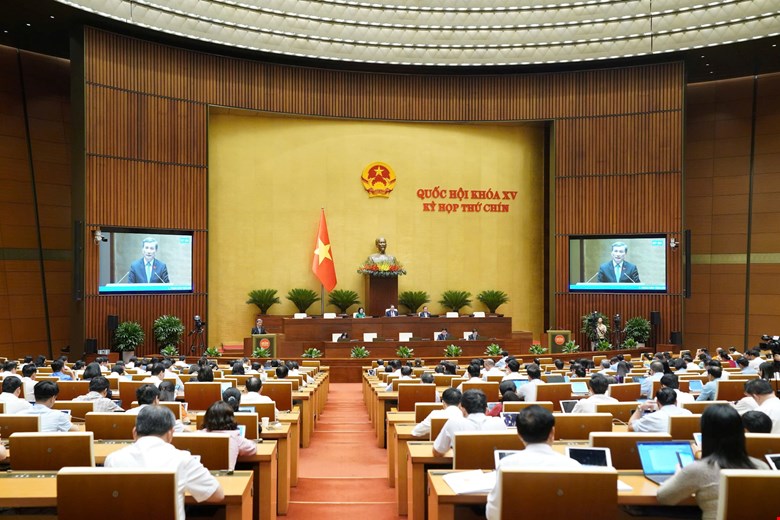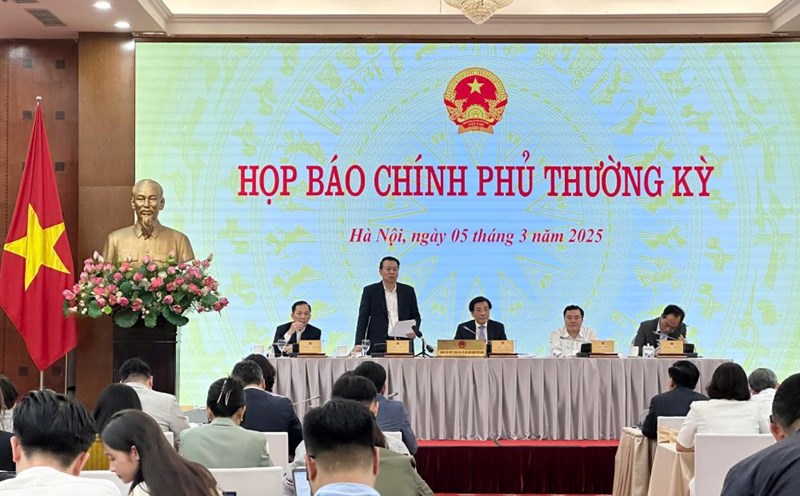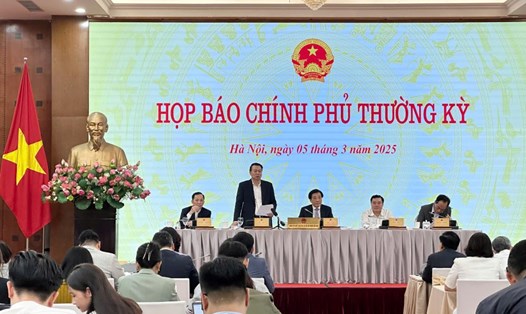Continuing the 9th Session, on the afternoon of May 9, Member of the National Assembly Standing Committee, Chairman of the National Assembly's Committee on Science, Technology and Environment Le Quang Huy presented a report explaining, accepting and revising the draft Law on Digital Technology Industry.
Mr. Le Quang Huy said that there is an opinion that it is necessary to build a digital asset legal framework that details core issues, immediately identifying the contents that must be implemented (reserty rights, ownership rights, transactions, security, responsibility, dispute resolution, risk management).
This will ensure consistency with the current legal system and international practices, while establishing a mechanism for management, supervision and risk prevention.
At the same time, it is necessary to clarify whether digital assets can be used for exchange or investment purposes or not; it is necessary to clarify the content and criteria for classifying digital assets.
The National Assembly Standing Committee found that, according to the draft law, digital assets have been identified as assets under current civil law.
Property rights, ownership rights, transactions, security, responsibility, dispute resolution, risk management... have been adjusted according to the provisions of criminal law, the law on anti-corruption, anti-money laundering and related laws.
Therefore, in order to ensure the feasibility, flexibility and stability of the legal system, the draft law only stipulates in principle and assigns the Government to specify in accordance with development practices.
In response to the opinions of delegates, the draft law has more specifically stipulated a number of core contents in state management of digital assets.
Including: the creation, issuance, storage, storage, transfer, and establishment of digital asset ownership rights; measures to ensure information security and network security; prevent and combat money laundering and terrorism; inspection, examination, and handling of violations of the law related to digital assets; business conditions for the provision of cryptocurrency asset services; issuance of cryptocurrency assets...
At the same time, the Government is assigned to specify in detail the authority and management of digital assets in the specialized field in accordance with practical conditions.

According to the draft law, digital assets are assets according to the provisions of the Civil Code, expressed in the form of digital data, created, issued, stored, transferred and authenticated by digital technology in the electronic environment.
virtual assets in the electronic environment are a type of digital asset that can be used for exchange or investment purposes.
virtual assets in the electronic environment do not include securities, legal thuc and other financial assets as prescribed by the law on civil and financial matters.
cryptocurrency assets are a type of digital asset that uses cryptocurrency technology or digital technology with similar functions to authenticate assets during the process of creating, issuing, storing, and transferring.
Classification of digital assets according to one or more of the following criteria: Purpose of use; technology; other criteria.
The content of digital asset management includes the creation, issuance, storage, storage, transfer, and establishment of digital asset ownership; rights and obligations of the parties to activities related to digital assets; measures to ensure information security and network security; prevention and control of money laundering and terrorism;
In addition, there are also inspections, checks, and handling of violations of the law related to digital assets; business conditions for the provision of cryptocurrency assets; issuance of cryptocurrency assets; other management contents.
Governance and management of digital assets in specialized fields are implemented according to Government regulations in accordance with practical conditions.











